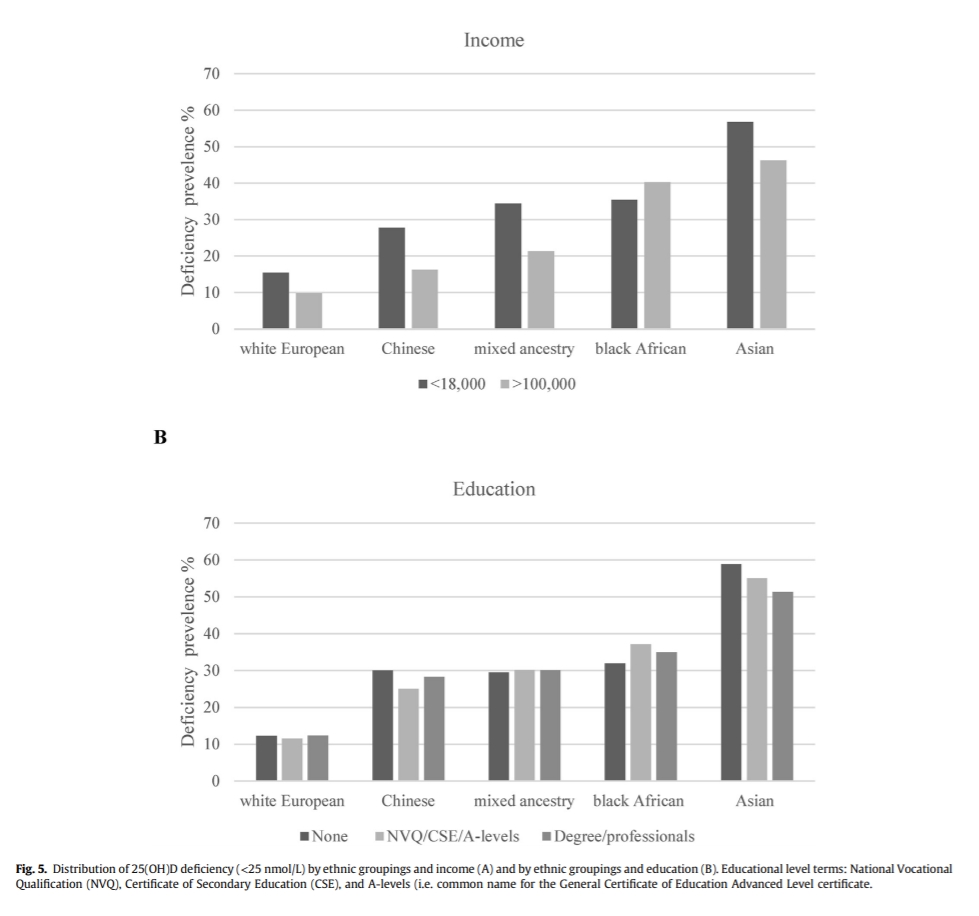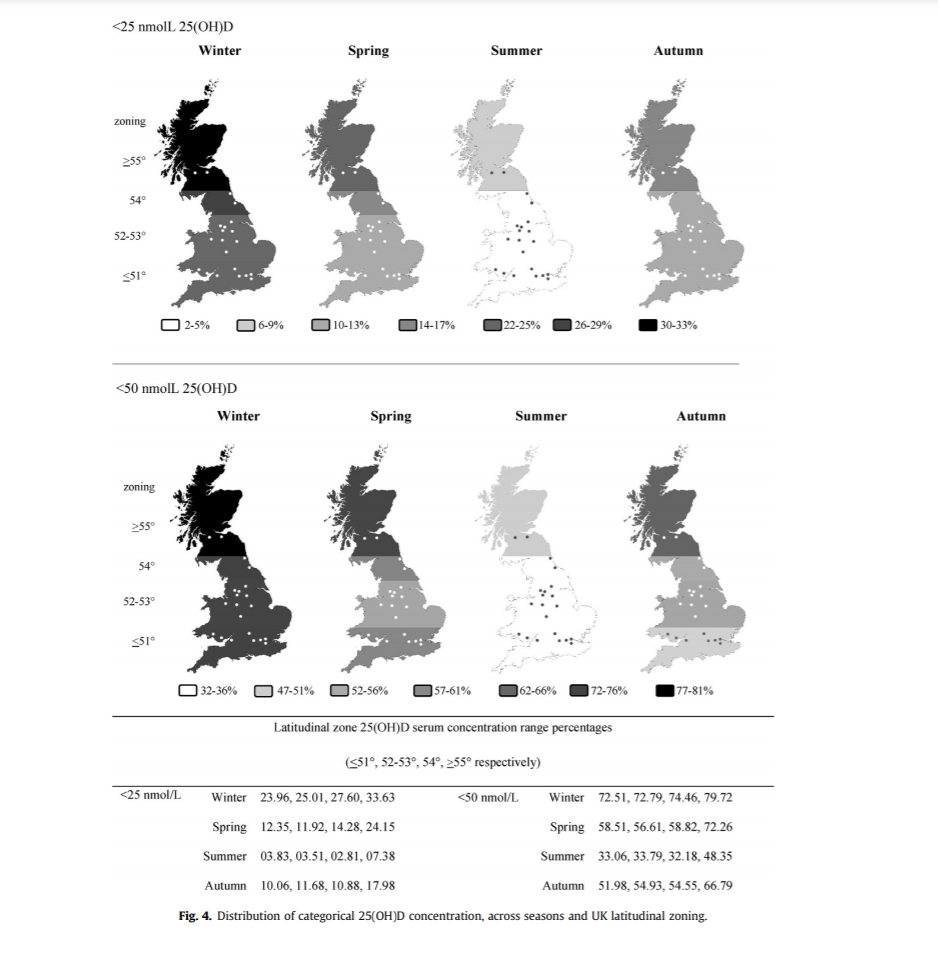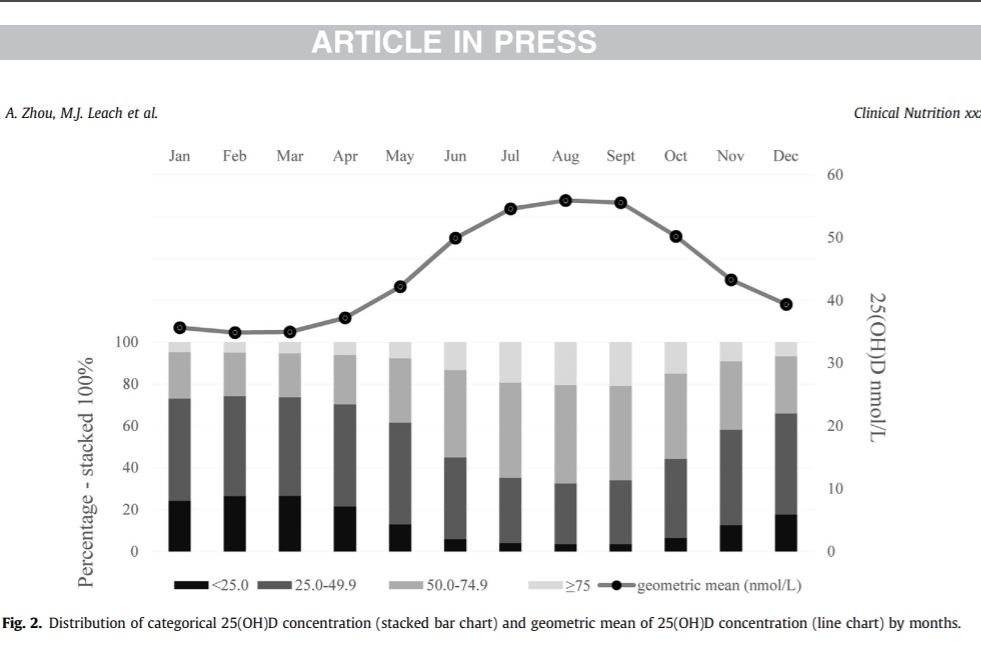Differences and determinants of vitamin D deficiency among UK biobank participants: A cross-ethnic and socioeconomic study
Joshua P.Sutherland Clinical Nutrition Volume 40, Issue 5, May 2021, Pages 3436-3447
Background
The public health relevance of true vitamin D deficiency is undisputed, although controversy remains regarding optimal vitamin D status. Few contemporary cross-ethnic studies have investigated the prevalence and determinants of very low 25-hydroxyvitamin D [25(OH)D] concentrations.
Methods
We conducted cross-ethnic analyses on the prevalence and determinants of vitamin D deficiency (25(OH)D ≤ 25 nmol/L) using data from 440,581 UK Biobank participants, of which 415,903 identified as White European, 7880 Asian, 7602 Black African, 1383 Chinese, and 6473 of mixed ancestry. Determinants of vitamin D deficiency were examined by logistic regression.
Results
The prevalence of vitamin D deficiency was highest among participants of
Asian ancestry (57.2% in winter/spring and 50.8% in summer/autumn) followed by those of
Black African ancestry (38.5% and 30.8%, respectively),
mixed (36.5%, 22.5%),
Chinese (33.1%, 20.7%) and
White European ancestry (17.5%, 5.9%).
Participants with higher socioeconomic deprivation were more likely to have 25(OH)D deficiency compared to less deprived participants (P = <1 × 10−300); this pattern was more apparent among those of White European ancestry and in summer (Pinteraction ≤6.4 × 10−5 for both). In fully-adjusted analyses, regular consumption of oily fish was associated with reduced odds of vitamin D deficiency across all ethnicities, while outdoor-time in summer was less effective for Black Africans (OR 0.89, 95% CI 0.70, 1.12) than White Europeans (OR 0.40, 95% CI 0.38, 0.42).
Conclusions
Severe vitamin D deficiency remains an issue throughout the UK, particularly in lower socioeconomic areas. In some groups, levels of deficiency are alarmingly high with one-half of Asian and one-third of Black African ancestry populations affected across seasons.
Key messages
The prevalence of vitamin D deficiency in the UK is alarming, with certain ethnic and socioeconomic groups considered particularly vulnerable.
















